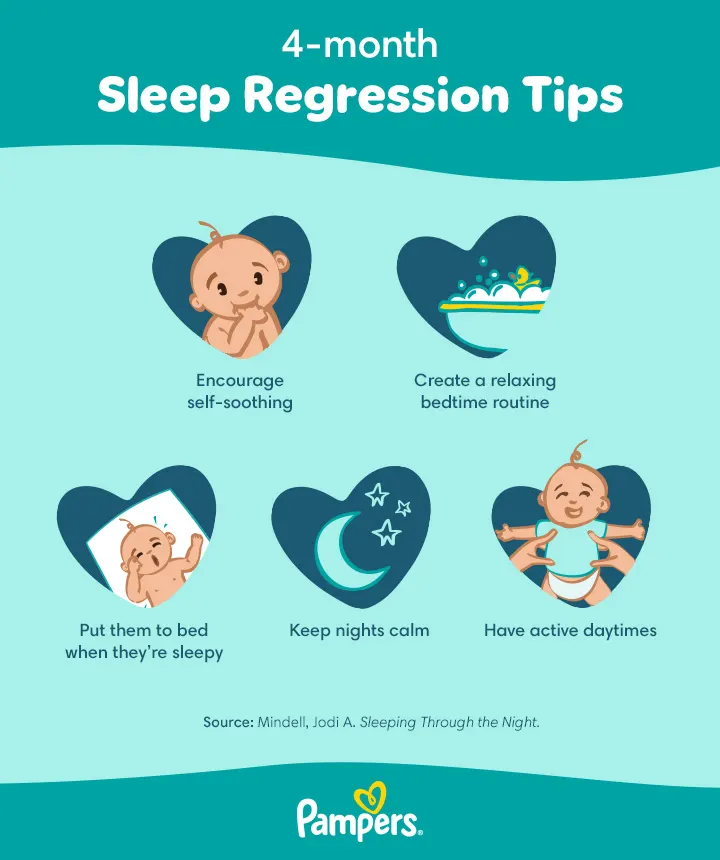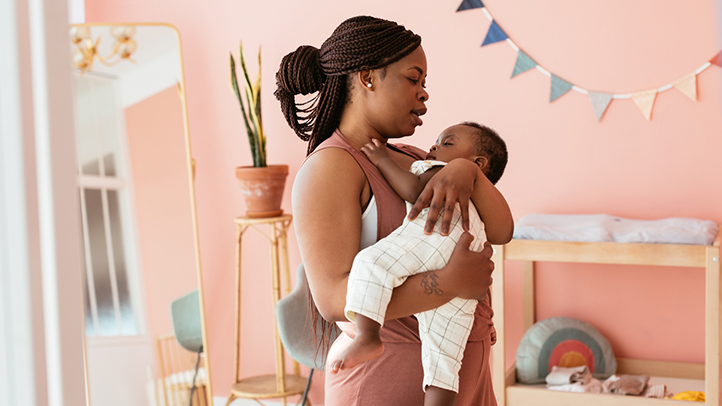Newborns should sleep 14 to 17 hours a day. They often sleep in short intervals throughout the day and night.
Understanding newborn sleep patterns is crucial for new parents. In the first few weeks, a newborn’s sleep is divided into multiple short naps, usually lasting two to four hours. This fragmented sleep schedule can be challenging for parents, but it is completely normal.
Newborns need plenty of rest for their rapid growth and development. During these early stages, their sleep cycles are shorter than those of older children and adults. Establishing a consistent sleep routine can help both the baby and the parents adjust. Adequate sleep contributes to a newborn’s overall health and well-being, setting the foundation for healthy sleep habits in the future.
Importance Of Sleep For Newborns
Sleep is crucial for newborns. It helps them grow and develop. Newborns need lots of sleep. They sleep about 16 to 17 hours a day. This may seem like a lot, but it’s very important for their health.
Physical Growth
During sleep, newborns grow. Their bodies produce growth hormones. These hormones help their bones and muscles develop. Babies who sleep well grow well. Their immune systems also get stronger.
Good sleep helps babies’ bodies repair. It strengthens their muscles and tissues. This is why sleep is so important for physical growth.
Brain Development
Sleep is also key for brain development. During sleep, newborns’ brains process new information. They form new connections and pathways. This helps with learning and memory.
Newborns who sleep well are more alert. They can focus better and learn faster. Sleep supports their emotional regulation too. Babies who rest well are generally happier.
| Benefit | Description |
|---|---|
| Growth Hormones | Produced during sleep, aiding in physical growth. |
| Brain Development | Helps form new brain connections and pathways. |
| Immune System | Strengthens the baby’s ability to fight off illness. |
| Emotional Regulation | Promotes a happier and more content baby. |
In summary, sleep is vital for newborns. It impacts their physical and mental growth. Ensuring your baby gets enough sleep is essential for their development.
Typical Newborn Sleep Patterns
Newborns have unique sleep patterns. Understanding these can help parents manage their baby’s sleep better. Babies often sleep for short periods. Their sleep cycles and patterns change frequently.
Sleep Cycles
Newborns experience shorter sleep cycles. Each cycle lasts around 50-60 minutes. During sleep, they move through light and deep sleep stages. Babies wake up easily during light sleep. They need many sleep cycles to feel rested.
| Sleep Stage | Duration |
|---|---|
| Light Sleep | 20-30 minutes |
| Deep Sleep | 20-30 minutes |
Day And Night Confusion
Newborns often confuse day and night. They sleep more during the day and less at night. This happens because their internal clocks are not yet developed.
- Keep the room dim at night.
- Expose your baby to natural light during the day.
- Establish a bedtime routine.
Helping your baby differentiate between day and night can improve their sleep patterns.
Recommended Sleep Durations
Understanding the recommended sleep durations for your newborn is crucial. Proper sleep helps in growth and development. Each age range has specific sleep needs. Let’s explore these sleep durations.
Newborn To 3 Months
Newborns sleep a lot. They need around 14 to 17 hours of sleep each day. This sleep is not continuous. It is divided into many naps throughout the day and night.
- Daytime Sleep: 8 to 9 hours
- Nighttime Sleep: 8 to 9 hours
During this stage, babies wake up often. They need to eat every 2-3 hours. This means they will wake up frequently during the night. Their sleep cycle is shorter than adults.
3 To 6 Months
At this age, babies start to develop a more regular sleep pattern. They need 12 to 16 hours of sleep each day.
- Daytime Sleep: 4 to 5 hours
- Nighttime Sleep: 8 to 11 hours
Babies in this age range might start sleeping longer at night. They still take multiple naps during the day. This helps them get the rest they need.

Credit: www.pampers.com
Creating A Sleep-friendly Environment
Newborns need a peaceful space to sleep. Creating the right environment helps them rest better. This section will guide you on how to make a sleep-friendly space for your newborn.
Optimal Room Temperature
Maintaining the optimal room temperature is crucial for a newborn’s sleep. The ideal temperature is between 68-72°F (20-22°C). Use a room thermometer to monitor this. Avoid overheating the room. Babies can’t regulate their body temperature well. Dress them in light sleepwear. Use a sleep sack instead of heavy blankets.
Safe Sleep Space
A safe sleep space is vital for a newborn’s safety and comfort. Follow these guidelines:
- Use a firm mattress in the crib.
- Ensure the crib meets safety standards.
- Avoid placing pillows, toys, or loose blankets in the crib.
- Place your baby on their back to sleep.
- Keep the crib in your room for the first six months.
By creating a safe and comfortable sleep environment, you help your newborn sleep better and longer.
Establishing A Bedtime Routine
Creating a consistent bedtime routine helps your newborn sleep better. A predictable schedule makes your baby feel safe and secure. It also signals that it’s time to wind down for the night. Below are some helpful steps to establish an effective bedtime routine.
Bath Time
A warm bath can be a relaxing start to bedtime. The warm water soothes your baby’s muscles and calms their mind. Bath time also helps wash away the day’s dirt and grime. This step signals to your baby that bedtime is near.
- Use warm, but not hot, water.
- Choose a gentle, baby-friendly soap.
- Keep bath time short, around 5-10 minutes.
After the bath, dry your baby with a soft towel. The next step is to dress them in comfortable pajamas. This will make your baby feel cozy and ready for sleep.
Story Time
Reading a story is another essential part of the bedtime routine. A quiet story relaxes your baby and helps them feel loved. Choose a short, simple book with soothing illustrations.
- Pick a book with soft, calming colors.
- Use a gentle, soothing voice while reading.
- Ensure the story is short, around 5 minutes.
Sit in a comfy chair with your baby on your lap. This close contact makes them feel safe and secure. Story time is also an excellent opportunity for bonding. It helps your baby associate bedtime with positive feelings.
Handling Sleep Regression
Sleep regression can be challenging for new parents. Understanding the causes and strategies can help ease this phase. Here, we will discuss common causes and coping strategies for sleep regression.
Common Causes
Several factors can lead to sleep regression in newborns:
- Growth spurts: Babies grow rapidly, disrupting sleep patterns.
- Developmental milestones: Learning new skills can affect sleep.
- Changes in routine: New environments or schedules can cause sleep issues.
- Teething: Discomfort from teething can wake babies up.
Coping Strategies
Here are some strategies to manage sleep regression:
- Maintain a consistent routine: Keep bedtime and naptime consistent.
- Create a calming environment: Use white noise and dim lights.
- Offer comfort: Soothe your baby with gentle rocking or singing.
- Monitor sleep cues: Look for signs of tiredness and act quickly.
- Be patient: Understand that this phase is temporary.
Recognizing Sleep Cues
Understanding your newborn’s sleep cues is essential for their well-being. Babies can’t tell you they’re tired, but they show signs. Recognizing these cues helps in ensuring your baby gets the sleep they need. Knowing these signs can prevent overtiredness, making bedtime easier.
Signs Of Tiredness
Identifying tiredness early can make a big difference. Here are some signs:
- Yawning: This is a clear sign your baby needs sleep.
- Rubbing eyes: Babies often rub their eyes when tired.
- Fussing: Increased fussiness can signal tiredness.
- Decreased activity: Your baby might become less active.
Watch for these cues regularly. Responding quickly can prevent overtiredness.
Overtiredness Indicators
Overtiredness can make it harder for babies to sleep. Here are some indicators:
- Crying: Excessive crying can mean your baby is overtired.
- Difficulty settling: Trouble falling asleep is a common sign.
- Hyperactivity: Some babies become more active when overtired.
- Short sleep cycles: Waking up frequently can indicate overtiredness.
Recognizing these signs early can help in creating a better sleep routine. Ensure a calm environment to help your baby settle down.
:max_bytes(150000):strip_icc()/HowMuchSleepDoInfantsNeed-Final-2d0ecdd915bc4530bc93e8e91b8291ba.jpg)
Credit: www.verywellfamily.com
Balancing Sleep And Feeding
Balancing sleep and feeding is crucial for a newborn’s growth. Babies need plenty of sleep and regular feedings. Parents often wonder how to balance these needs. This guide will help you understand the best practices.
Feeding Schedules
Newborns need frequent feedings due to their small stomachs. They usually eat every 2-3 hours. A good feeding schedule helps in maintaining a balanced routine. It ensures your baby gets enough nutrients without disrupting sleep.
| Age (Weeks) | Feeding Frequency | Total Sleep (Hours) |
|---|---|---|
| 0-2 | 8-12 times/day | 16-18 |
| 3-4 | 7-9 times/day | 15-16 |
| 5-6 | 6-8 times/day | 14-15 |
Nighttime Feedings
Nighttime feedings are often challenging but necessary. Babies need to eat at night for growth. Creating a calm environment can help. Keep the room dark and quiet during nighttime feedings.
- Use a dim night light
- Avoid stimulating activities
- Keep feedings brief and calm
Nighttime feedings will decrease as your baby grows. By three months, many babies can sleep longer stretches. Always consult your pediatrician for personalized advice.

Credit: www.happiestbaby.com
Frequently Asked Questions
How Long Should A Newborn Be Awake?
Newborns should be awake for only 45 minutes to 1 hour at a time. They need plenty of sleep to grow.
Is My Newborn Sleeping Too Much?
Newborns typically sleep 14-17 hours a day. Consistent sleep patterns are normal, but consult your pediatrician if concerned.
Can I Let My Newborn Sleep All Day?
Newborns can sleep up to 18 hours a day. Ensure they wake every 2-3 hours for feeding. Consult your pediatrician for personalized advice.
How Long Should A Newborn Sleep Without Waking?
Newborns typically sleep 14-17 hours a day. They usually wake every 2-3 hours to feed.
How Many Hours Should A Newborn Sleep Daily?
Newborns typically sleep 14 to 17 hours a day. Their sleep is divided into short periods.
Conclusion
Ensuring your newborn gets enough sleep is crucial for their growth and development. Stick to a regular sleep schedule. Be attentive to their needs and create a peaceful sleeping environment. Consult your pediatrician for personalized advice. Proper sleep habits now will benefit your baby in the long run.


